Augustine, City of God . Garden City, N.Y.: Image Books, 1958.
Dante Alighieri. The Inferno . New York: New American Library, 1954.
Goethe, Johann Wolfgang, Von. Faust (Trans. Bayard Taylor). Teddington: Echo Library, 2006.
Hochhuth, Rolf. The Deputy (Trans. Richard and Clara Winston). Baltimore: John Hopkins University Press, 1997.
Lasker-Schler, Else. I and I (Trans. Jane Curtis). In Three Plays , Evanston, Ill.: Northwestern University Press, 2005.
Mann, Klaus. Mephisto (Trans. Robin Smyth). Reprint. New York: Penguin Books, 1995.
Mann, Thomas. Doctor Faustus: the life of the German composer Adrian Leverkuhn as told by a friend (Trans. Lowe-Porter). London: Penguin Books in association with M. Secker & Warburg, 1968
Mann, Thomas. Germany and the Germans. In Thomas Manns Addresses, Delivered at the Library of Congress 1942 1949 . Washington: Library of Congress, 1963.
Plato. The Republic . Cambridge: Cambridge University Press, 2000.
Interpretation
Arbaugh, George E., and George B. Arbaugh. Kierkegaards Authorship , London: Allen and Unwin, 1968.
Arendt, Hannah. Eichmann in Jerusalem: A Report on the Banality of Evil . New York: Penguin Books, 1974.
Auerbach, Eric. Mimesis: the Representation of Reality in Western Literature. New York: Doubleday, 1953.
Bainton, Ronald Herbert. Here I Stand: A Life of Martin Luther. Nashville: Abingdon Press, 1990.
Bates, Paul. Faust: Sources, Works, Criticism . New York: Harcourt Brace and World, 1969.
Bauschinger, Sigrid. Else Lasker-Schler: Biographie . Gttingen: Verlag Wallstein, 2004.
Bernstein, Alan E. The Formation of Hell. Ithaca: Cornell University Press, 1993.
Bianquis, Genvieve. Faust Traves Quatre Sicles. Paris: Aubier, 1955.
Bloomfield, Morton. The Seven Deadly Sins. East Lansing: Michigan State University Press, 1957.
Blumenthal, Bernhardt G. The Play Element in the Poetry of Else Lasker Schler. In The Germany Quarterly , vol. 43, Sept., 1970.
Bosmajian, Hamida Metaphors of Evil: Contemporary German Literature in the Shadow of Nazism. Iowa City: University of Iowa Press, 1979.
Bullock, Allan Louis Charles. Hitler and Stalin. New York: Peter Lang, 1985.
Bultman, Rudolf. The New Testament and Mythology and Other Basic Writings. New York: Scribner Press, 1955.
Butler, E. M. The Fortunes of Faust. Cambridge: Cambridge University Press, 1952.
Cernyak-Spatz, Susan. German Holocaust Literature . New York: Peter Lang, 1985.
Christoffel, Ulrich. Deutche Innerlichkeit. Munich: Piper, 1940.
Cohen, Hans W. Lasker-Schler: The Broken World. Cambridge: Cambridge University Press, 1974.
Corwin, Virginia. St. Ignatius and the Christianity in Antioch. New Haven: Yale University Press, 1960.
Christensen, Peter. Collaboration is Istevan Szabos Mephisto, Film Criticism vol. 12 no. 3, 1988, p. 22.
Demetz, Peter. After the Fire. San Diego: Harcourt Brace & Jonavich, 1986 .
Dictionnaire de Spiritualit. Paris: G. Beauchesne et ses fils, 19321995.
Dictionnaire de Theologie Cchatolique . Paris: Letouzey et Ane, 1901.
Dumont, Louis. German Ideology: From France to Germany and Back . Chicago and London: Chicago University Press, 1994.
Ehrman, Bart D. The Apostolic Fathers. Cambridge, Mass.: Harvard University Press, 2003.
Eliade, Mircea. A History of Religious Ideas II : From Guatamo Buddha to the Triumph of Christianity. Chicago: Chicago University Press, 1989.
Else Lasker-Schler: A Poet who Paints. Hecht Museum, University of Haifa, 2006.
Evens, Stephan. Subjectivity and Religious Belief: A Historical Critical Study. Washington DC: University Press of America, 1978.
Falkenberg, Betty. Else Lasker-Schler: A Life . Jefferson, N.C.: McFarland, 2003.
Forsyth, Neil. The Old Enemy: Satan and the Combat Myth . Princeton: Princeton University Press, 1987.
Friedlnder, Saul. Kurt Gerstein , the Ambiguity of Good. New York: Knopf, 1969.
Goldhagen, Daniel. A Moral Reckoning: The Rule of the Catholic Church in the Holocaust and its Unfulfilled Duty of Repair. New York: Alfred A. Knopf, 2002.
Goldhagen, Daniel. Hitlers Willing Executioners: Ordinary Germans and the Holocaust . New York: Alfred A. Knopf, 1996.
Grant, Robert M. Greek Apologists of the Second Century. Philadelphia: Westminster Press, 1988.
Hartman, Geoffrey. The Fateful Question of Culture. New York: Columbia University Press, 1977.
Heller, Eric. The Ironic German: A Study of Thomas Mann . London: Secker & Warburg, 1958.
Hallensleben, Markus. Else Lasker-Schler. Avantgardismus und Kunstinszenierung , Tbingen: Franck Verlag, 2001.
Heizer, Donna K . Jewish German Identity in the Orientalist Literature of Else Lasker-Schler, Friedrich Wolf, and Franz Werfel . Columbia, S.C.: Camden House, 1996.
Hessing, Jacob. Else Lasker-Schler: Karlsruhe: Loeper, 1985.
Hofe, Harold, von. German Literature in Exile: Thomas Mann. In The German Quarterly , Vol. 17, No. 3, May, 1944.
Jaspers, Carl. On The Deputy, in Eric Bentley (ed.), The Storm Over the Deputy . New York: Grove Press, 1964.
Jones, Calvin N. The Literary Reputation of Else Lasker-Schler: Criticism 1901 1993 . Columbia, S.C.: Camden Press, 1994.
Kael, Pauline. A Devil without Fire. In The New Yorker , May 17th, 1982, p. 128.
Kahler, Erich The Devil Secularized: Thomas Manns Faust. In Henry Hatfield (ed.), Thomas Mann: A Collection of Critical Essays. Englewood Cliffs, N.J.: Prentice-Hall, 1964.
Kaufman, Walter. Tragedy and Philosophy . New York: Doubleday, 1968.
Kelly, Henry Ansgar. The Devil at Baptism: Ritual, Theology, and Drama. Ithaca: Cornell University Press, 1985.
Kohlschmidt, Wermer. Form und Innerlickeit . Bern: A. Franck Verlag, 1955.
Lorenz, Dagmar. 1939: Else Lasker-Schler Becomes Permanently Exiled in Jerusalem when Swiss Immigration Authorities Deny Her Reentry to Switzerland. In Sander Gilman and Jack Zipes (ed.), The Yale Companion to Jewish Writings and Thought in German Culture. New Haven, Conn.: Yale University Press, 1997.
Lucs, Georg. Essays on Thomas Mann . New York: Grosset & Dunlop, 1964.
Lunstrum, Rinda. Two Mephistos: A Study in Dialectics . In Modern Drama , vol. 28, 1985, p. 162170.
Mann, Golo. The Real Accomplishment. In Bentley, Eric (ed.), The Storm Over The Deputy . New York: Grove Press, 1964.
Mann, Klaus. The Turning Point: Thirty Five Years in this Century. London: V. Gollancz, 1944.
Mann, Klaus. Andr Gide and the Crisis of Modern Thought . New York: Creative Age, 1943.
McGinn, Bernard. Antichrist: Two Thousand Years of Human Fascination with Evil. San Francisco: Harper, 1994.
McGinn, Bernard. The Foundations of Mysticism . New York: Crossroad, 1991.
Mason, Philip Mason, and More, Robert Pattison. The Sources of the Faust Tradition: from Simon Magus to Lessing. New York: Haskel House, 1965.

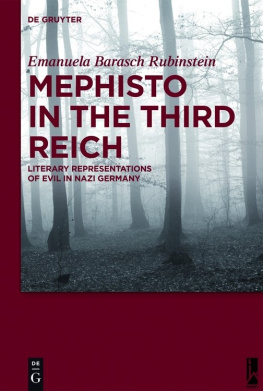

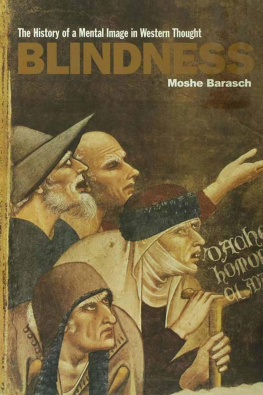
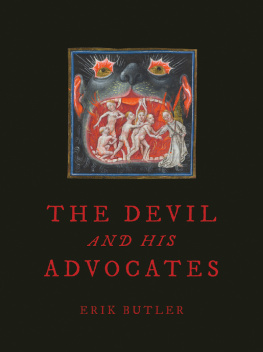




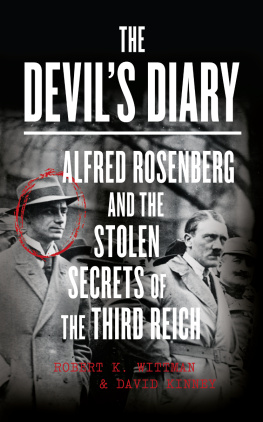
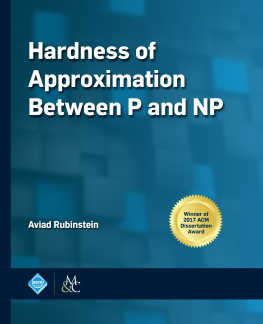
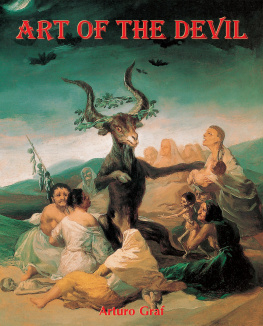

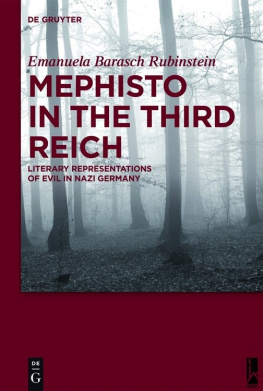
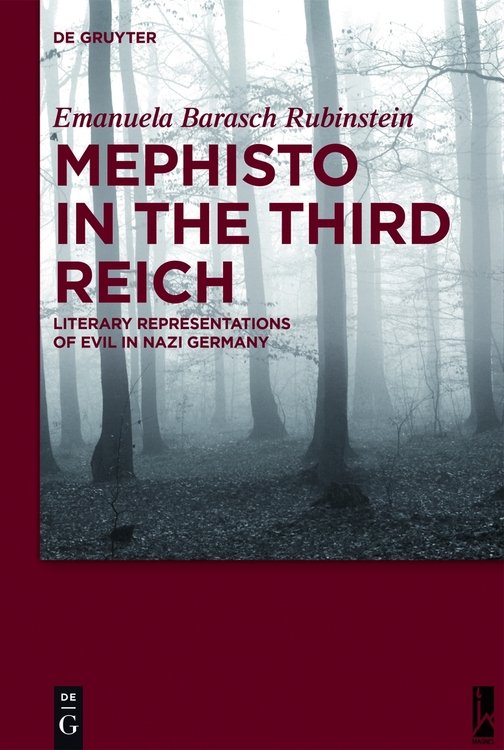
 und Prosa aus dem Nachlass. Frankfurt a. M.: Suhrkamp, 2002.
und Prosa aus dem Nachlass. Frankfurt a. M.: Suhrkamp, 2002.